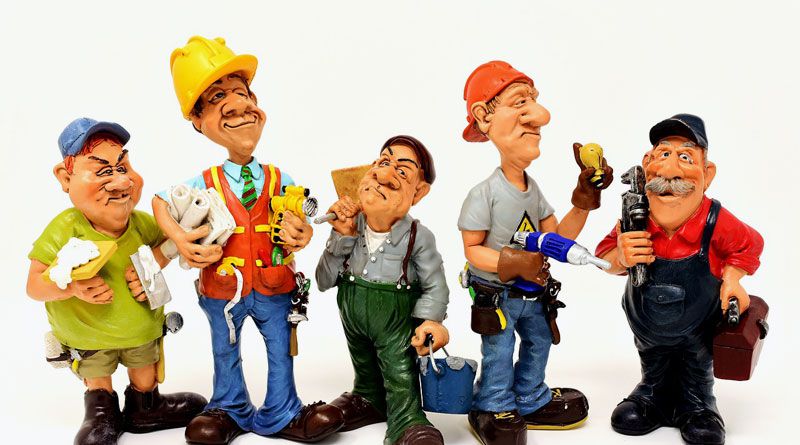If you work in the field of construction, then you must know how important your “tools of the trade” are. Your tools are your means to complete difficult and sometimes dangerous construction jobs with an utmost level of efficiency and safety.
Proper tool maintenance is very much in the interest of your construction business’s profits. Wear-and-tear in your instruments is to be expected, as they’re built to endure rough and frequent use. But if you’re not careful, peripheral expenses for repairs or replacement can add up and create significant problems for your budget. Worst comes to worst, poorly maintained tools could lead to job-related accidents and bring down aconstruction firm’s reputation, insurance rating, and even its profit margins.
That said, you should honor the investment you’ve made in your construction tools and implement measures that will enable you to maximize their service life. Conscientious handling of tools goes a long way in saving time and money, as well asensuring the productivity and well-being of the user. Here are the seven best practices we recommend for keeping your tools in tip-top condition.
Inspect your tools frequently
It’s safe practice to check up on the condition of your tools at least days before the next time you’ll subject them to heavy use. Do perform a precautionary maintenance routine for each of your tools, making sure to sort out blunt or misaligned blades, broken casing, or other problems way ahead of time. Don’t wait until the worst-case scenario, which is if a tool fails you in the middle of a job.
Treat both your cordless and corded power tools with care
The operating and maintenance profiles of wired tools and battery-operated tools such as power tools with brushless motors differ. Don’t forget the difference between these two types when it comes to how fast they heat up in between high-speed and high-torque cycles. If you’re using the battery-operated tools, make sure you and your staff charge the battery systems properly. You can install reminders on your phones, or within the office, to charge and clean battery-operated tools on schedule.
Clean and lubricate your tools
It goes without saying that you should clean off dirt or debris that accumulates on your tools throughout jobs. For the basic tools, a good wipe-down and rub with a mild cleaning agent will be enough. But it is also important to lubricate your tools, as constant exposure to moisture and condensation could corrode the material. Use air-tool oil, or what is recommended by the original manufacturer, to properly lubricate your tools.
Protect your tool’s wires
Exposed, faulty, or frayed wires are a huge safety hazard. Checking up and repairing your cords as needed will prevent not only tool failure, but fires. Do protect all electrical cords by wrapping them in industrial-strength protective casings. Also make sure that both your staff and clients avoid stepping on or tripping over the wires.
Observe proper storage of your tools
One of the biggest culprits of tool damage is, unsurprisingly, improper storage. If your tools are left to the elements and are subject to high humidity when they’re not in usage, they could very well deteriorate without you knowing. So, protect the metal components of your tools by putting them in their proper case. Also make sure that the storage area in your office or warehouse is as neat and dry as possible.
Use protective equipment
This is another basic practice that is still worth repeating. Never do your checkups barehanded. Remind your staff to use their protective gear and wear appropriate clothing when handling tools, as accidents can happen anytime.
Keep your product warranties and establish open lines for repairs
When in doubt, refer to the attached guidelines on how to use your tools, or how to secure product warranty in case of defects. Enjoin your staff members to keep the receipts, operating manuals, and warranties in an accessible place. Also get in contact with your local repairmen if bigger problems with your tools come up. Though costly, professional repairs are necessary from time to time, and will be much better in the long run than spending for replacements.
Here’s to guaranteeing the best usage of your construction tools and fostering a safe, efficient, and creative working environment!
For any types of queries, you can contact us on info[at]namasteui.com.

